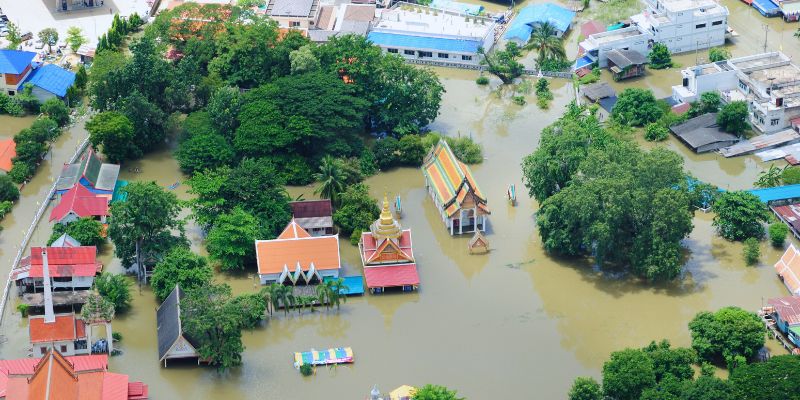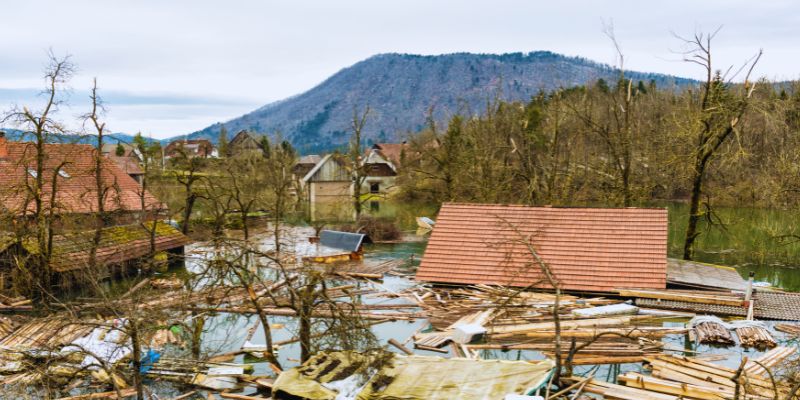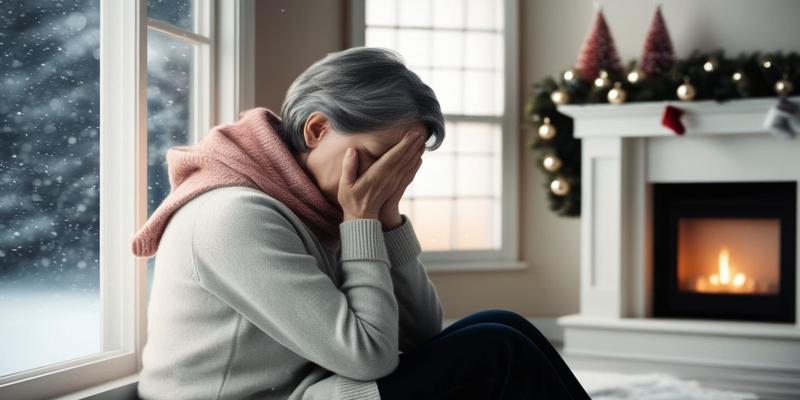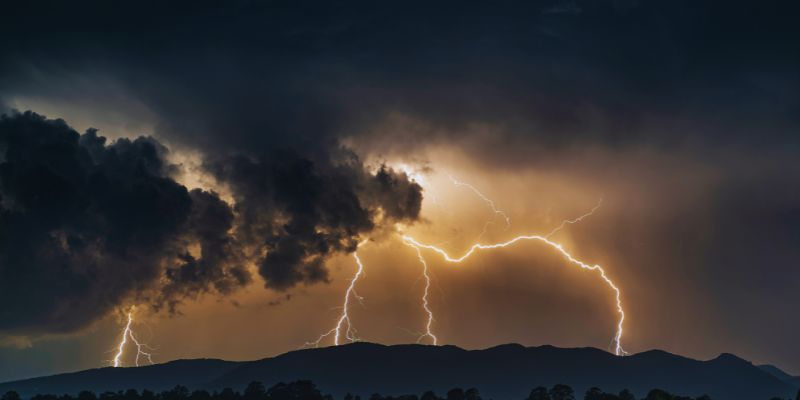Natural catastrophes cause major disturbance and devastation wherever and at any moment. Whether it's hurricanes, floods, wildfires, or earthquakes, the aftermath sometimes results in injuries, illnesses, and extreme mental stress. Maintaining your health during these occasions is vital. Understanding the risks and getting ready can help minimize their effects on your welfare.
This article will review sensible strategies for maintaining health during these erratic occurrences. From simple first aid information to developing an emergency plan, being proactive can significantly change things. Get your family ready to keep safe.

Why Natural Disasters Affect Health and Well-Being?
Natural disasters can bring on many health problems. From immediate physical damage to mental health issues, these events tax people. While wildfires aggravate respiratory problems, flooding can cause watery illnesses. A disaster's accompanying uncertainty and worry can aggravate anxiety and depression. People might get hurt in collapsed structures, among fallen debris, or by extreme weather. Further complicating recovery is sometimes insufficient medical services.
One should be aware of these risks. Knowing how to safeguard your health might save your life whether you live in a place likely to experience earthquakes or storms. The secret is early preparedness. To guarantee your well-being, stock medical kits and required materials. Your chances of remaining healthy amid the calamity will increase with increasing knowledge.
Building a Health Emergency Plan for Natural Disasters:
Once a calamity strikes, a strong health emergency plan is vital. This plan should cover family communications, evacuation paths, and your immediate medical requirements. Start by compiling pertinent medical information for every family member, including allergies, current medical conditions, and medications. Make a first aid box including bandages, antiseptic, painkillers, and prescription drugs.
Then, set up escape paths and ensure everyone in your house knows where to run. Your strategy should call for other means of communication should conventional ones fail. That can call for an alternative means of communication and emergency contact numbers. Being ready helps you to avoid panic and guarantees that, under duress, you make wise decisions.
Preventing Waterborne Diseases During Flooding:
Flooding seriously compromises your health, especially with waterborne infections. Harmful bacteria and viruses causing cholera, typhoid, and dysentery can reside in stagnant water. Stay away from direct contact with floodwater to guard yourself whenever possible. If you must cross floodwaters, minimize exposure using gloves and boots. Drink only filtered water; polluted water is a common source of disease during floods. Boil your water or use water cleansing pills if you are not sure about the safety of your water source.
After any possible contact with floodwater, always wash your hands with soap and clean water. Maintain dryness and cleanliness in your living space. Regular cleanliness and disinfection of surfaces follow the recedes of the floodwaters. Eliminate any contaminated or moldy items since mold development could cause breathing issues. Avoiding infections during floods mostly depends on preventability and awareness.

Staying Safe During Wildfires and Air Quality Concerns
Wildfires strongly affect air quality and can cause respiratory problems and other health issues. Harmful particles in wildfire smoke can irritate the nose, eyes, and throat. Extended exposure to this smoke can cause major respiratory issues, particularly for youngsters, the elderly, and those with pre-existing lung diseases. If you live anywhere and will likely see wildfires, you should have an interior air purification system.
Stay indoors as much as possible when air quality is bad. Closed windows and doors help to stop smoke from getting in. In smoky situations, avoid strenuous activity since this might aggravate respiratory problems. See a doctor immediately if you have trouble coughing, breathing, or chest discomfort. These steps will reduce your risk of health issues during wildfire outbreaks.
Earthquake Safety and Avoiding Injury
Earthquakes are seldom occurring and have a great physical impact. One really must be ready before an earthquake strikes. First, fasten bulky appliances and furniture to stop them from tipping over under shaking. Ensure items on shelves are sturdy and improbable to fall from as these might hurt someone. Drop to the ground, cover under strong furniture, and hold on until the shaking ceases an earthquake.
Steer clear of standing next to windows, glass, or big objects that might fall. If you are in a vehicle, stop in a safe spot and remain inside until the shaking stops. Following an earthquake, look for dangers, including electrical problems or gas leaks. These can cause more damage or start fires. Use your emergency plan; if evacuation is called for, flee. Being proactive will help you and your family to survive an earthquake.
Mental Health and Coping with the Aftermath
A natural disaster's emotional toll can be as great as its physical effects. Anxiety, sadness, and post-traumatic stress disorder (PTSD) can all follow from post-disaster stress. Maintaining your mental health both during and following a tragedy is vital. Talk about your emotions to friends and relatives. Sharing your experiences can assist in lowering tension. Contact mental health experts; never hesitate to go for counseling.
Moreover, relaxation methods, including meditation and deep breathing, are helpful. Participating in community events can offer emotional support and help bring about normalcy. Volunteering and helping others can provide direction and enable you to overcome emotions of powerlessness. Recall that maintaining your mental health is equally vital as attending to your bodily condition.
Importance of Vaccinations and Preventative Care
Maintaining your health depends on vaccinations, particularly during and after natural disasters. Limited access to treatment and inadequate sanitation help diseases spread more readily in communities devastated by disaster. Make sure your vaccines are current, particularly for diseases like tetanus and hepatitis A, which are more common in disaster zones.
Discuss any extra vaccinations you might need with your healthcare professional if you want to live in or visit a disaster-prone location. That will help you stay free from disease and guarantee that your health stays safeguarded should unanticipated circumstances arise.
Conclusion:
Although natural catastrophes carry major health risks, you can reduce these risks with enough planning. You can protect your well-being under these trying circumstances by foresight, knowledge, and mental and physical health protection. Emphasize building an emergency medical plan, guaranteeing access to clean water, and avoiding airborne threats. Given the uncertainty of natural events, health safety should always come first. Be proactive; you will be more suited to manage any circumstance.











